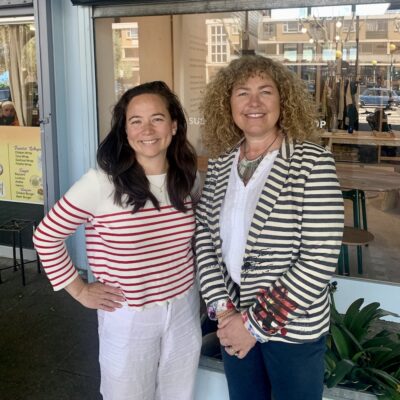
Working in the business v working on the business
What happens when you’re so busy doing the work that you can’t take a step back and focus on strategy for the business you know can grow?

How difficult do you think it would be to raise billions to build essential infrastructure for underserved communities in Africa, things like hospitals, schools, green energy and sanitation? This is the challenge currently facing Hussein Sefian of Acre Impact Capital.
So far it’s going pretty well. He’s got the backing of The Rockefeller Foundation and GuarantCo, part of the Private Infrastructure Development Group, an innovative infrastructure finance organisation owned by the governments of the UK, the Netherlands, Switzerland, Australia, Sweden, Germany and the IFC.
But, despite serious credentials gained whilst working at blue chip financial companies Deutsche Bank and BNP Paribas, Hussein’s challenge is that his impact investing strategy is completely novel. Indeed, Acre Impact Capital is spearheading the first series of funds which focus on the export finance market. In a way, it is providing access to investors to a new asset class.
“When you are trying to do something new it can be a bit of a lonely place and it’s good to have partners and mentors that you can engage with,” Hussein told us after we matched him up with Graham Thomas, a managing partner at private equity firm Stage Capital.
“It was very helpful to get feedback from an experienced, seasoned fund manager about the potential of the fund and how investors might react to it. It provided another layer of validation and comfort that we were onto something interesting and quite powerful,” said Hussein.
Acre Impact Capital is using a finance tool called export finance. In a nutshell, if they can raise 15% of the money needed for these infrastructure projects and prove that the work will be good for UK business and jobs, the UK government (through UK Export Finance) will underwrite the risk of the other 85%. That insurance then attracts investors as it makes their own investment less risky. By funding the initial 15% tranche, Acre Impact Capital mobilizes $5.6 for each dollar invested.
Whilst working at BNP Paribas, Hussein became more interested in impact investing just as he saw some investment banks stepping away from financing initiatives in Africa.
“At the same time you could see a trend of impact investors that were interested in deploying their capital in a more meaningful way. And it felt to us that this could be an opportunity to set up a new instrument, a new vehicle that could be very interesting for impact investors and has the potential to mobilize a significant amount of capital,” said Hussein.
One of Graham’s key suggestions was to bring in external, independent investment committee members on board, targeting seasoned investment professionals with a strong career track record. Their independence and reputations would complement Hussein’s fund proposition.
“That was particularly helpful, and since then Graham was open to having follow-on conversations on specific topics. He was very generous in terms of helping make introductions with relevant people that could support our project and just generally willing to have a chat and provide guidance and support. It was a really good experience to speak with him. It’s great that this initiative exists,” said Hussein.
Raising a fund of this size can take up to two years and Acre Impact Capital now has a pipeline of 30 projects under consideration to potentially invest in. We’ll be staying in touch with Hussein to track the development of the business, but for now, watch this space.
Would you like to a mentor to consult with? Start here.
Photo by Karolina Grabowska from Pexels

Working in the business v working on the business
What happens when you’re so busy doing the work that you can’t take a step back and focus on strategy for the business you know can grow?

How social enterprise can boost your marketing
Social enterprises often want to compete in the market on the quality of the service or product they are selling. But a change in strategy reaped dividends for one social entrepreneur.

How your network can see you through troubled times
Marie Cudennec Carlisle’s business was suddenly vulnerable when her customers ceased orders during the pandemic. But a supportive phone call from a fellow social entrepreneur helped turn things around.